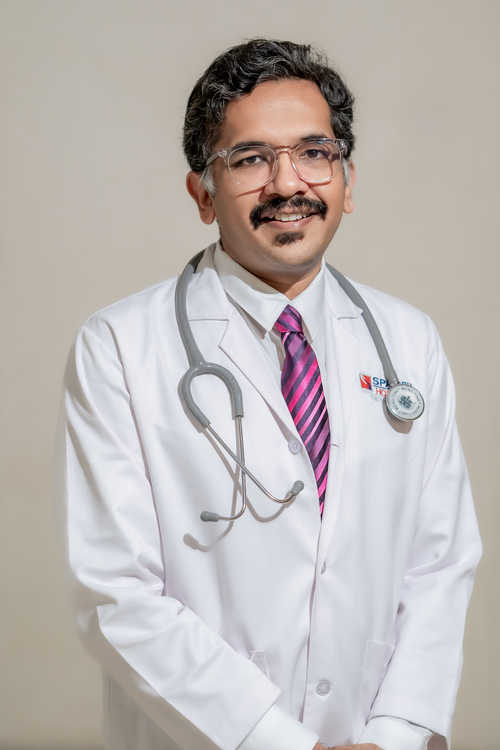A 67-year-old woman with a history of dizziness was found to have a tumour behind her upper jaw when she underwent a scan. Although it looked like a benign (non-cancerous growth), the location was a challenging one; it was behind the upper jaw in the parapharyngeal space, a narrow corridor that extends from the upper neck to the skull base. It was in proximity (around 1.2 cm) from the internal carotid artery, the main artery that supplies the brain, as well as multiple cranial nerves that control tongue movement, voice and shoulder function. Conventional approaches would involve splitting the lower jawbone or creating a controlled fracture of the upper jawbone to move it out of the way for access. The concern with endoscopic removal was that it would require removal in pieces and not whole, leading to spillage and a higher chance of recurrence.
In order to reduce the trauma associated with surgery and recovery, the surgical team led by Dr Narayana Subramaniam, Director of Head and Neck Surgery and Director of Clinical Innovation, Sparsh Hospitals, used a novel approach, where the entire approach was through the mouth, and the access was by removing the posterior aspect of the upper jaw bone (the pterygoid plates and pterygoid hamulus) and displacing the muscles to create a corridor to completely remove the tumour. This approach is novel and was performed for the first time to remove a tumour of the skull base (a thin plate of bone separating the brain and its surrounding coverings, and the upper part of the nose, eye sockets and paranasal sinuses). It is a critical area where important blood vessels and nerves traverse, with complications ranging from bleeding, permanent nerve dysfunction and life-threatening infections. The surgery took two and a half hours and the patient’s recovery was smooth, with no post-operative complications. The approach was entirely through the mouth, with no incisions on the face or neck. The final pathology showed a benign salivary gland tumour, which means the patient has an excellent chance of cure.
Treatment of skull base tumours is complex and challenging because they are rare (so most specialists do not have significant experience treating them) and the location is complex with several critical structures traversing the area that cannot be injured. However, when treated in a comprehensive fashion by specialists who work as a team, patients have a low chance of complications and treatment-related side-effects, going on live a happy and fulfilling life. Advances in imaging and surgical treatment have allowed reduced hospital stay and excellent outcomes in this challenging group of diseases.
